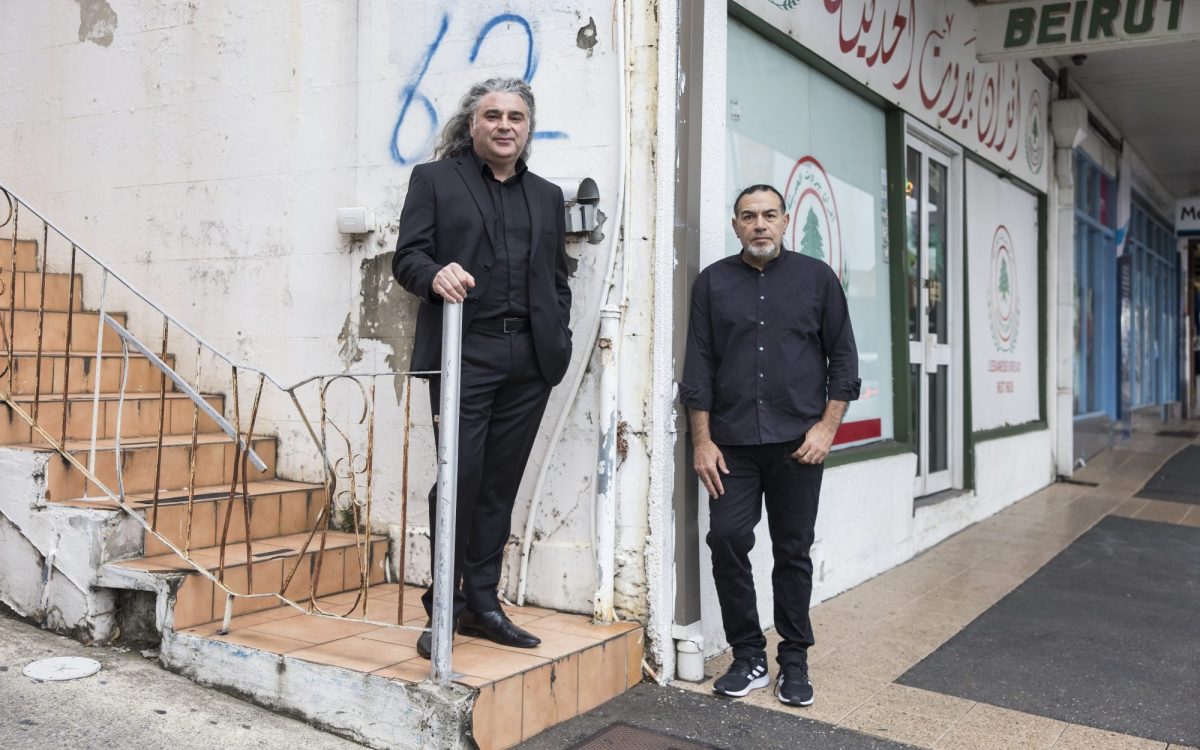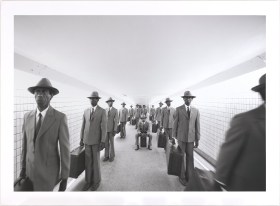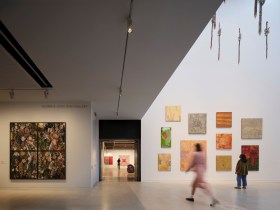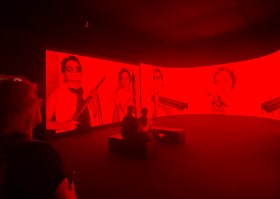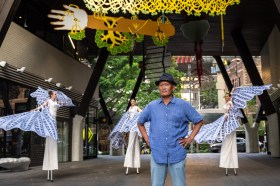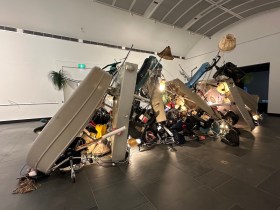Creative Australia CEO, Adrian Collette AM, issued a formal statement today (2 July) that the previously decommissioned artistic team – artist Khaled Sabsabi and curator Michael Dagostino – will be reinstated to present their work at the Australian Pavilion as part of the 2026 Venice Biennale.
This follows an external review conducted by Blackhall & Pearl into Creative Australia’s governance, which found “there was no single or predominant failure of process, governance or decision-making that resulted, ultimately, in the decision to rescind the selection of the artistic team,” wrote Collette.
He continued, “We acknowledge that there were, however, a series of missteps, assumptions and missed opportunities; therefore the Board has accepted all the recommendations, which will be implemented by Creative Australia.
“After careful reflection on the best path forward for 2026, the Board has determined that the original commission of the Artistic Team, Khaled Sabsabi and Michael Dagostino, will proceed. ”
The decision to rescind the selection in February was met with shock and backlash across the Australian and international art sector, greatly damaging the reputation of Creative Australia as a government body and trust towards its mission of supporting the country’s artists.
Numerous open letters and petitions were signed in the following months, calling on Creative Australia to reinstate the artistic team and examine its own governance and selection process, with Chair of the Board, Robert Morgan, retiring from his position on 23 May. Senior staff members, including Head of Visual Arts, Mikala Tai and Program Manager of Visual Arts, Tahmina Maskinyar, also left the organisation following the backlash.
In addition to announcing the decision to reinstate the 2026 Venice Biennale team, Collette has made a formal apology regarding the situation. He wrote, “The decision the Board took in February has weighed heavily on many people, most particularly the artistic team and for that we are sorry.
“We are also sorry that this has caused concern and uncertainty for many in the broader arts community and we are committed to rebuilding trust in our processes for the commissioning of the Venice Biennale.”
Despite being decommissioned, Sabsabi and Dagostino had been finding ways to realise the project in Venice through crowd-funding and other industry support.
Sabsabi and Dagostino welcomed the news of their reinstatement on Instagram, saying, “This decision has renewed our confidence in Creative Australia and in the integrity of its selection process. It offers a sense of resolution and allows us to move forward with optimism and hope after a period of significant personal and collective hardship.”
In addition to the reinstated creatives, Simon Mordant AO – who promptly resigned from his position as a Biennale Ambassador and withdrew financial support in protest in February – has now accepted the role of Global Ambassador and Advocate for Australia at the 2026 Venice Biennale.
Mordant said in a media release shared with ArtsHub, “After careful consideration and thorough due diligence, I have accepted the role of Global Ambassador and Advocate for Australia at the 2026 Venice Biennale. I am confident that the work presented will reflect the highest artistic standards and align with the values I have always upheld – integrity, inclusion and respect.”
He added, “I would never knowingly support an artist or art that glorifies terrorism, racism or antisemitism or went against my values. I think everybody has to be very careful about the insidious rise of racism and antisemitism, which has become particularly prevalent in Australia. I stand by these values, and I stand by freedom of expression in the art world.
“I would like to think this can be a watershed moment for the Australian arts community whereby we can work towards eliminating any form of racism, including antisemitism, across the arts industries, I know Khaled shares this ambition,” concluded Mordant.

